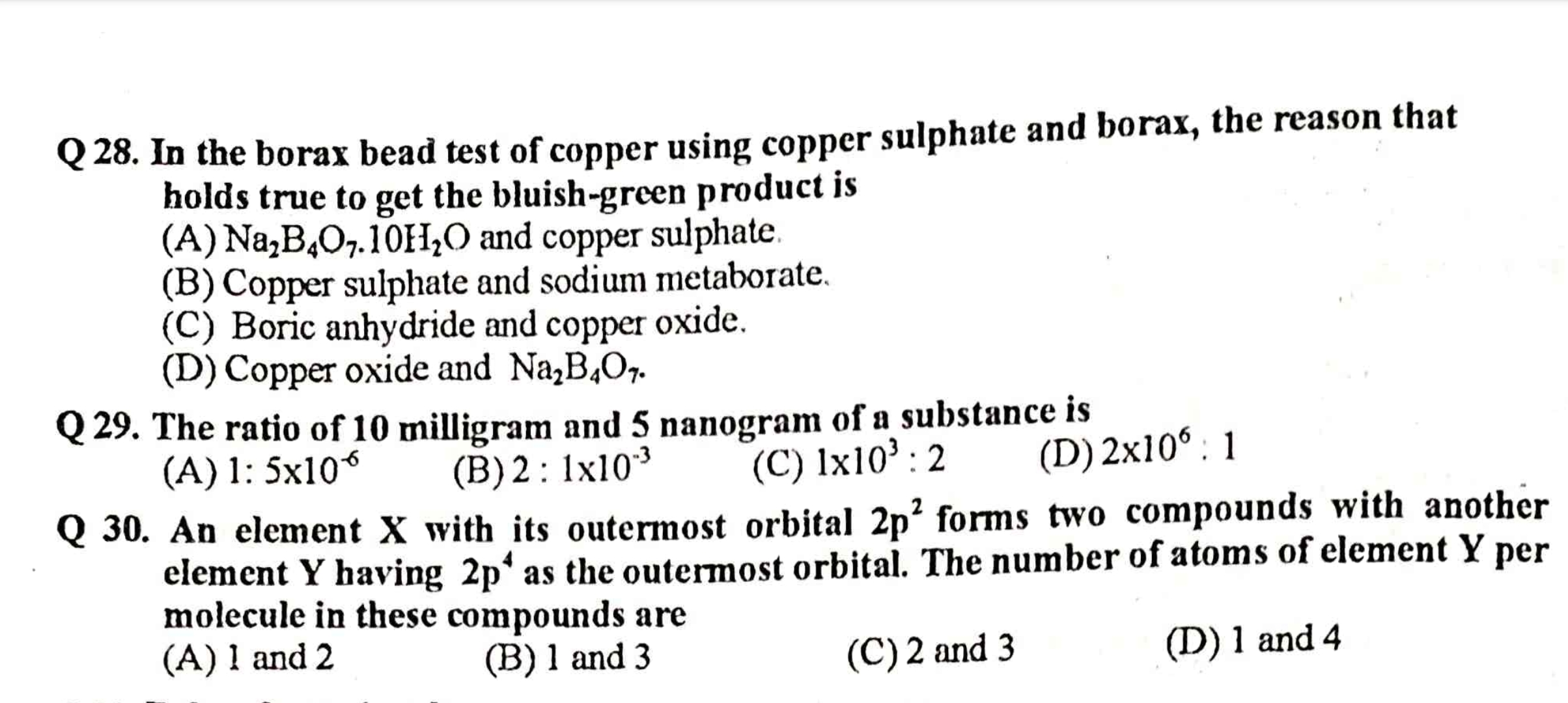In the borax bead test of copper using copper sulphate and borax, the reason that holds true to get the bluish-green product is. The ratio of 10 milligram and 5 nanogram of a subst... In the borax bead test of copper using copper sulphate and borax, the reason that holds true to get the bluish-green product is. The ratio of 10 milligram and 5 nanogram of a substance is. An element X with its outermost orbital 2p2 forms two compounds with another element Y having 2p as the outermost orbital. The number of atoms of element Y per molecule in these compounds are.

Understand the Problem
The question is asking about the borax bead test of copper and the conditions under which a bluish-green product is formed when using copper sulphate and borax, along with other related queries involving substance ratios and chemical compounds.
Answer
28) C, 29) D, 30) B
The answers are: 28) C, 29) D, 30) B
Answer for screen readers
The answers are: 28) C, 29) D, 30) B
More Information
For the borax bead test, the bluish-green color is due to the formation of boric anhydride and copper oxide (option C). The ratio of 10 mg to 5 ng is calculated as 2x10^6:1 (option D). For the compounds formed by the elements, the solution involves considering typical compound formations with such valences.
Tips
For question 29, ensure correct unit conversion between milligrams and nanograms. For question 30, understanding typical valencies in elements helps predict compound formulas.
Sources
- Borax bead test with CuSO4 - infinitylearn.com
AI-generated content may contain errors. Please verify critical information